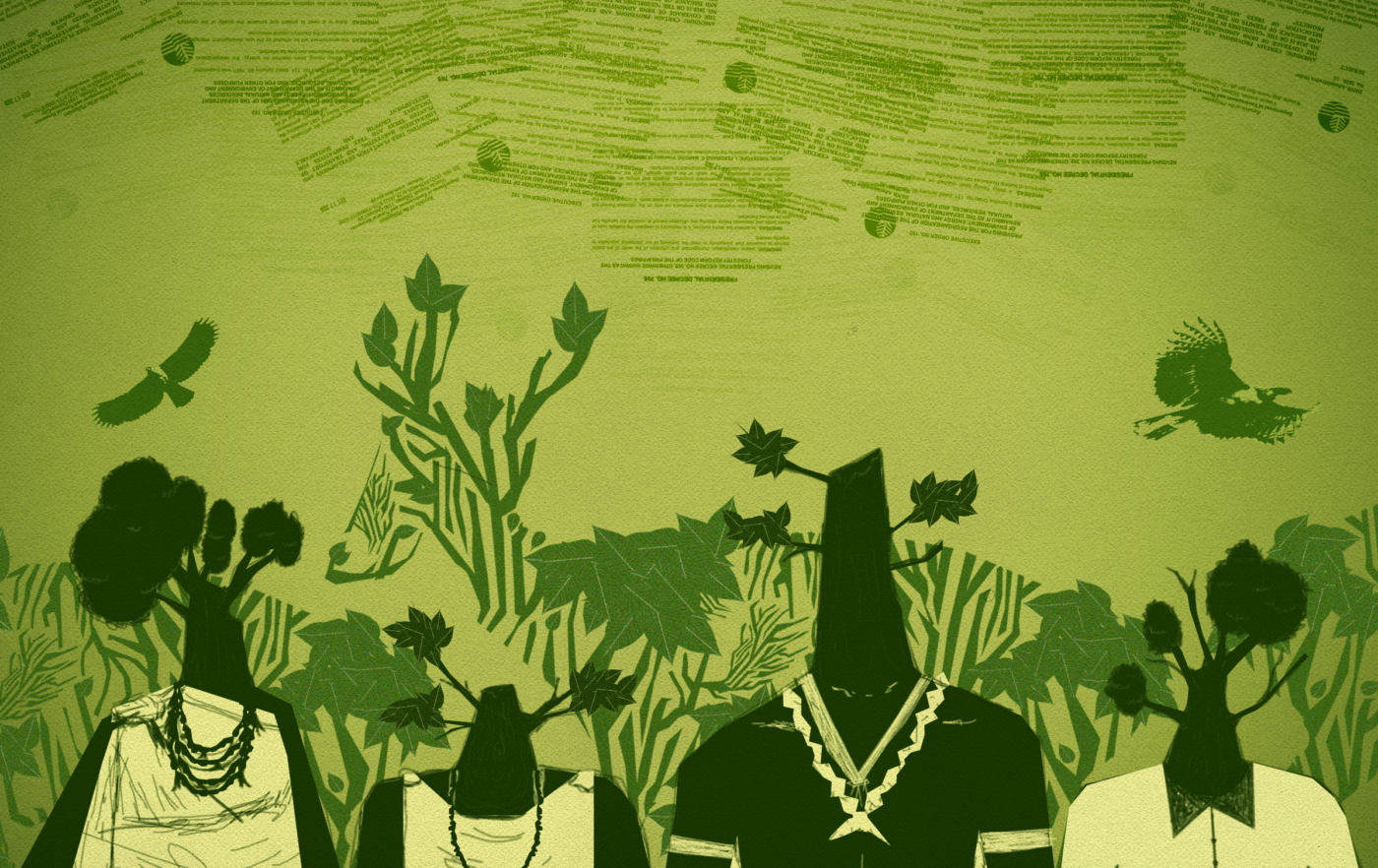THE PHILIPPINES’ standing as one of the most severely deforested countries in the world imperils the nation in more ways than one. Driven by factors such as land conversion and timber harvesting, logging has spared no more than 25% of the archipelago’s indigenous forest area. This has gravely disturbed the stability crucial to ecosystems’ survival and threatened indigenous communities whose ancestral lands have grown increasingly defaced.
The integration of social and ecological systems entails that environmental decay comes at a humanitarian cost. In turn, this relationship reveals that the solution to the environmental crisis lies in human initiatives.
The seesaw effect
The dependence on natural resources manifests in various forms of land use. An example of this is the ancestral domains claimed by Indigenous Peoples (IPs). These domains cover lands, forests, and agricultural areas that IPs access for traditional activities such as hunting and fishing. Additionally, many IPs have homes and social institutions—including healthcare systems—in these areas. Due to the existence of IPs’ land tenure rights and national conservation policies, these lands are recognized as symbols of IPs’ identity and culture.
However, ancestral lands aren’t always protected by policies. For instance, illegal mining done by small-scale miners has affected the Obo Manuvu tribe in Mindanao by breaching their mountains. Environmental violations committed by oil palm companies in Palawan have also resulted in difficulties for IPs, such as deforestation, erosion of traditional crops, and threats to food security. Rather than attributing blame for large-scale deforestation to land grabbing agencies and mining enterprises, restrictive policies often place IPs under fire for their ‘slash-and-burn’ practices.
To address issues on private land use and protect IP rights, conservation programs such as the Reducing Emissions from Deforestation and Forest Degradation (REDD+) campaign and the Land Rights Now campaign were created. These programs were made to highlight how individuals and communities often alternate between being protectors and destroyers, which can either accelerate or decelerate countries’ biodiversity loss rates.
Warning signs
Thus far, humanity’s role in deforestation and biodiversity loss has been largely destructive. Approximately 30% of the global biodiversity decline is credited to forest conversions on land use, often for agriculture or mining purposes. These developments result in deforestation practices robbing various life forms of their habitats and accelerating biodiversity loss.
The ecological imbalance wrought by biodiversity loss consequently prompts bacteria and pest infestations, noted Mendoza. Forests, in particular, house viruses that can be lethal to humans upon the lack of predators to enforce natural population control. In Brazil alone, a 10% yearly increase in forest loss resulted in a 3% increase in malaria cases. Being considered a megadiverse country, the Philippines’ rapid biodiversity loss is especially prone to causing grave instability in its highly dense ecosystems.
To safeguard forest resources is a daunting task that requires important actors at play. According to Mendoza, protecting humans from hazardously exploiting forest resources requires good governance. “We have cases that have demonstrated [that] although you have a large population that depends on natural resources, if you have an effective government mechanism, [you can] have [a] good co-existence between [the] people and [the] natural resources,” he stated.
Slashed defenses
Effective governance over forest use remains ambitious for the Philippines, given that its forestry code was written nearly five decades ago. Environmental lawyer and Party of the Inspire Project Chief Atty. Ipat Luna remarked that, while the current forestry code has its merits, it largely views forests as an exploitable resource and tolerates unideal logging concessions. Additionally, Luna noted that Congress’ inability to establish a final scope of forest area hampers the implementation of existing forestry policies.
The legislature has also left reforestation efforts with deficient funding. The Department of Environment and Natural Resources (DENR) spends 75 percent of its meager budget on bureaucratic functions, leaving under Php 10 billion for projects. Luna surmised that Senate’s conservative funding for the department is informed by skepticism towards the success of DENR’s endeavors, given the volatility of environmental factors such as typhoons.
“[Senate] should be putting money [in reforestation] and making sure it works, rather than saying, ‘It should work’ and pulling [funding] out when it doesn’t,” she said.
For the successful protection of the country’s forests, Luna advised the adoption of a new forestry code that focuses on the sustainable production of wood. Moreover, she highlighted the importance of adequate funding to encourage the effective enforcement of forestry laws so the primary drivers of deforestation can be properly regulated.
Roots of change
In hoping for change within the government, Luna emphasized the value of political “inspiration” to put environmental justice on the policy agenda. She suggested that advocates explain the environment’s relevance to social realities, given how a purely factual approach to discussing deforestation has since failed in persuading society to care about the issue.
For Mendoza, a community’s will to protect its forests stems from an effective understanding of their importance. He urged that educators teach environmental science outdoors and allow students to witness first-hand how lessons apply to their surroundings. This, along with the presence of “green spaces” where the youth can foster an affinity to nature, is what creates “intrinsically motivated individuals” who advocate for forest protection.
Those whose lives depend on forests have much to expect from the Philippines after pledges have been made toward reforestation. This opens the floor for IPs to actively engage the nation in demanding government support in preserving ancestral lands. With IP groups, environmental advocates around the country await the fruits of the government’s commitments to REDD+ and other climate goals. These advocates—along with the entire nation—are ready to hold the nation’s newly elected leaders to their word.




